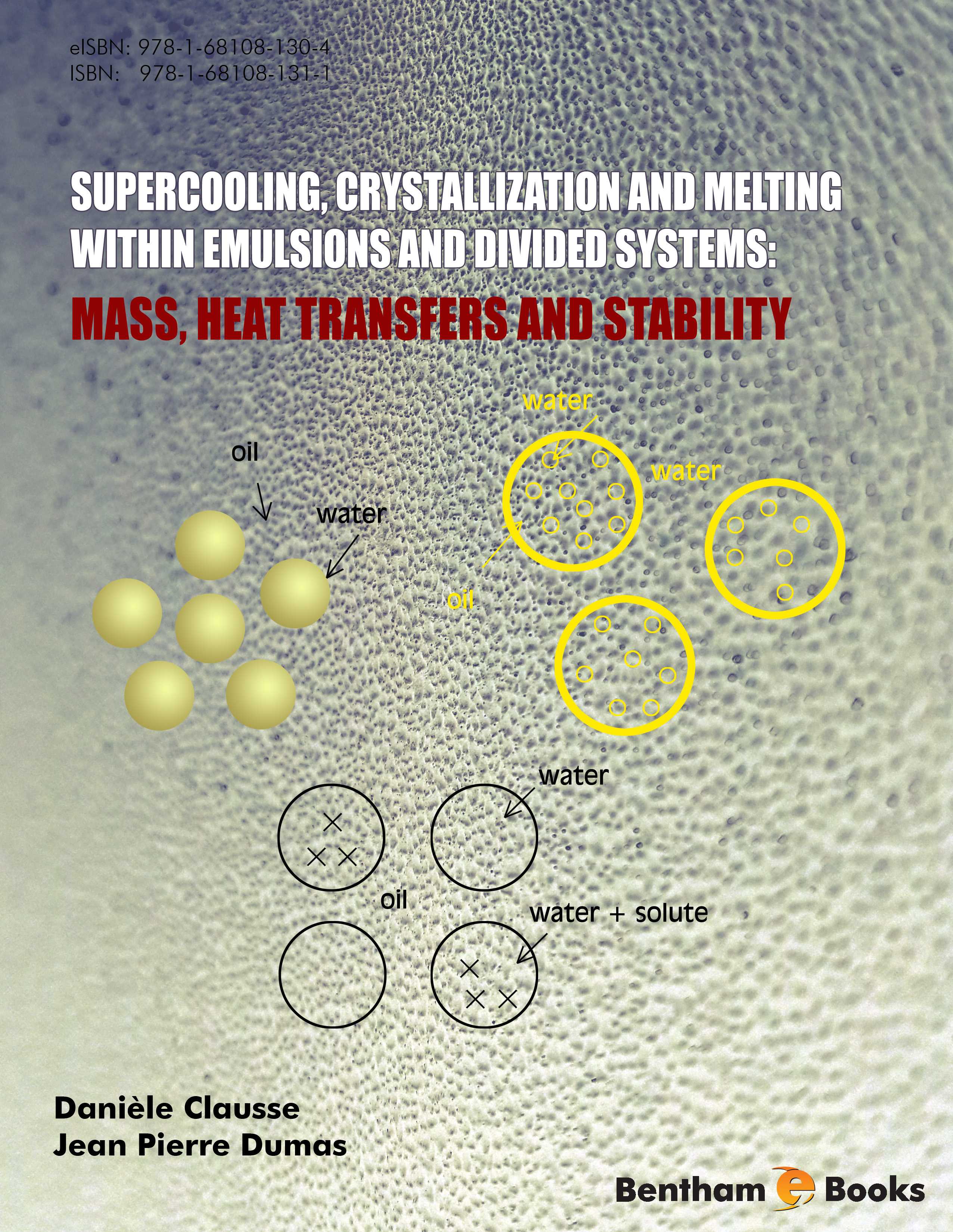Introduction
Emulsions (simple, mixed or multiple) are essentially pure substances, aqueous or organic binary solutions. The have a wide range of uses, including industrial cooling and heat transfer processes. This monograph gives a brief overview of supercooling, crystallization and melting processes within emulsions. Differential scanning calorimetrey (DSC) coupled with RX is the main technique used to demonstrate these processes. Temperature readings in this work have been defined taking into account known nucleation laws. These results have been used to show mass transfers occurring within mixed emulsions (solid ripening) or multiple emulsions (composition ripening), gas hydrate formation due to a chemical reaction between water and a diffuse specific compound, these phenomena being described by diffusive models. Other aspects of heat transfer process covered in this book include the latent energy released at crystallizations or absorbed at the melting (which alters the temperature field through emulsions), the kinetics of phase transformations and self-regulation of temperature in nodules containing phase changing materials. This monograph is intended for advanced chemistry graduates as well as industrial and chemical engineers working with cooling and heat transfer systems.

